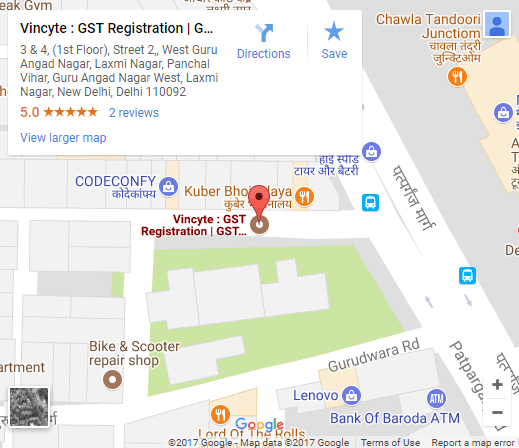IFC is applicable in India and is a pivotal aspect of commercial governance. The Companies Act, 2013 authorizations the establishment and conservation of acceptable internal Financial controls by companies. also, the( SEBI) has also issued guidelines and regulations for listed companies to strengthen their internal control systems.The conception of IFCs is pivotal for promoting translucency, responsibility, and integrity in Financial operations.
Key aspects of Internal Financial Controls
- Companies covered: Internal Financial control conditions apply to all companies registered under the Companies Act, 2013, including both private and public companies.
- Reporting conditions under Companies Act 2013: Section 134( 5)( e) of the Companies Act, 2013 authorizes that the Board of Directors of a company should include a statement which states that the company has acceptable internal Financial controls in place and that they’ve been operating effectively in their periodic report.
- Statutory Auditor’s role: The statutory adjudicators of the company are responsible for assessing the effectiveness of internal Financial controls over Financial reporting (IFC- FR) and reporting any material sins or scarcities set up during the inspection.
- SEBI guidelines: Listed companies in India are needed to misbehave with the SEBI( Listing scores and Disclosure Conditions) Regulations, 2015. These regulations dictate the expression and perpetration of internal Financial control systems for listed realities.
- Comercial governance conditions: Good commercial governance focus on the significance of internal Financial controls to insure translucency, responsibility, and the forestallment of fraud and mismanagement.
- Internal controls framework: Companies may borrow internationally honored fabrics for internal controls, similar to the COSO( Committee of Financing Associations of the Treadway Commission) frame, to establish and estimate the effectiveness of their internal Financial controls (ICFS).
- Internal Control over Financial Reporting (ICFR): ICFR is an element of IFCs that focuses specifically on Financial reporting. It involves processes and controls that aim to insure the delicacy, absoluteness, and trustability of Financial statements.
- Risk Assessment: Companies in India need to conduct a threat assessment exertion to identify and estimate implicit pitfalls that could impact the achievement of their Financial objects. The threat assessment helps in designing effective control measures to alleviate these pitfalls.
- Isolation of Duties: A abecedarian principle of internal control is the isolation of duties. isolation of duties ensures that no single existent has control over multiple stages of a Financial sale, which reduce the threat of fraud and error.
- Documentation and Review: Indian companies must maintain proper attestation of their IFCs and review them periodically. Regular monitoring and evaluation help identify sins or gaps in the controls and allow for timely corrective conduct.
- Listed Companies: SEBI authorizations that listed companies in India misbehave with the Listing scores and Disclosure Conditions( LODR) regulations, which include conditions related to IFCs. Listed companies need to expose information on their IFC frame and submit daily reports on the status of IFCs to stock exchanges.
Eligibility Criteria of Internal Financial Controls( IFCs)
As per Companies Act 2013 IFCs is applicable to all the companies, Ministry of Corporate Affairs has issued announcement dated 13th June 2017 in relation to impunity from IFC ton base of specified criteria to following companies i.e. One person Company( OPC) or a Small Company; or Company whose development is lower thanRs. 50 Crores as per rearmost checked Financial statement or aggregate borrowings from banks or Financial institutions or any body commercial at time during the Financial time less thanRs. 25 Crore.
Industry Parameters w.r.t IFCs
IFCs is applicable to colorful types of companies which come in dimension of companies act 2013 specified criteria to apply it and associations like government realities,non-profit associations, and other realities involved in Financial operations. Then are some key areas where IFCs are generally applied
- Companies: IFCs are applicable to all types of companies, including private companies, public companies, listed companies, and foreign companies operating in India. The Companies Act, 2013 authorizations that companies establish and maintain acceptable IFCs.
- Banks and Financial Institutions: Banks and Financial institutions have to misbehave with specific regulations and guidelines related to internal controls, threat operation, and Financial reporting. The Reserve Bank of India( RBI) issues guidelines to insure robust internal control systems in banking and Financial sectors for effective internal Financial control.
- Goverment Entities: Perpetration of IFCi.e internal Financial controls is must for Government realities, including central and state government departments, public sector undertakings( PSUs), and statutory bodies, are needed to insure proper Financial operation, responsibility, and compliance with applicable laws and regulations.
- Non-Profit Associations: NGO i.e Section 8 Companies also need to insure internal Financial controls to effectively manage their Financial coffers, maintain translucency, and misbehave with nonsupervisory conditions.
- Listed Companies: Listed companies on stock exchanges in India are subject to fresh conditions regarding IFCs. The Securities and Exchange Board of India( SEBI) authorizes listed companies to misbehave with the Listing scores and Disclosure Conditions( LODR) regulations, which include specific vittles related to IFCs.
- Small and Mediym-Sized Enterprises (SMEs): While there may be variations in the scale and complexity of IFCs grounded on the size of the association, SMEs are encouraged to apply internal controls suitable for their operations to insure Financial integrity, minimize pitfalls, and grease growth.
Frequently Asked Questions
What are internal Financial controls?
Internal Financial controls( IFCs) relate to the programs, procedures, and systems enforced by an association including companies as specified under companies act 2013 to maintain the delicacy, trustability, and integrity of its Financial reporting and guard its means. Internal Financial Controls( IFCs) are to help fraud, crimes, misstatements in Financial statements, and to promote compliance with laws and regulations.
Why are internal Financial controls important?
Internal Financial controls are essential for several reasons
- They help associations in icing the delicacy and trustability of Financial information.
- They guard the association’s means from misappropriation or abuse.
- They give assurance to stakeholders, similar as investors, creditors, and controllers, regarding the association’s Financial reporting.
- They help in complying with applicable laws, regulations, and account norms.
- They promote functional effectiveness and effectiveness by streamlining Financial processes.
Are internal Financial controls obligatory in India?
Yes, internal Financial controls are obligatory in India. The Companies Act, 2013, requires every company to establish and maintain acceptable internal Financial controls over Financial reporting. The Securities and Exchange Board of India( SEBI) also authorizations listed companies to misbehave with specific internal control conditions.
What's the part of the Board of Directors in internal Financial controls?
The Board of Directors has a pivotal part in icing the effectiveness of internal Financial controls. Their liabilities include
- Oversight: The Board should give oversight of the internal control frame, including reviewing and approving control programs and covering their perpetration.
- Risk assessment: The Board should assess and understand the association’s Financial pitfalls and ensure applicable controls are in place to alleviate them.
- Reviewing Financial statements: The Board should review and authorize Financial statements, icing they reflect accurate and dependable information.
- Internal control disclosures: The Board should make applicable exposures regarding internal Financial controls in the company’s periodic report.
How are internal Financial controls assessed in India?
Internal Financial controls are assessed through internal checkups and external checkups. Internal adjudicators estimate the design and effectiveness of controls and give recommendations for enhancement. External adjudicators, appointed by the company’s shareholders, review the Financial statements and express an opinion on whether they present a true and fair view, including an assessment of internal controls.
What are the consequences of non-compliance with internal Financial controls in India?
Non-compliance with internal Financial controls can have serious consequences, including
- Financial penalties: Controllers can put financial penalties on companies that fail to maintain acceptable internal controls at associations.
- Legal Implications: Non-compliance may come as a reason to legal conduct, examinations, and implicit liability for the company and its directors.
- Legal implications: Failure to maintain proper controls can result in reputational detriment to the association, affecting its connections with stakeholders.
- Loss of investor confidence: Investors may lose confidence and faith in a company that doesn’t have robust internal Financial controls, leading to a decline in share value and difficulty in raising capital.
Get In Touch

Contact Us
New Business


